In this article, we will get into the details of GST on Gold and its effects on the gold market, goldsmiths, export of gold, etc.
There are over 90 metals known to humanity, out of which about 9 are deemed as precious metals.
However, if someone asked you to name a precious metal, your first answer would be “Gold”, wouldn’t it.
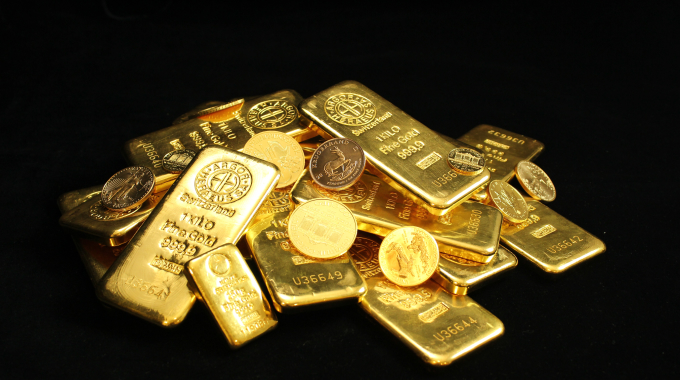
And you are not alone at it either. As an Indian, the value and craze of gold are imbibed within each one of us from birth.
From birthdays to marriages, people in India love to adorn themselves with gold jewellery.
We usually need no excuse to buy gold, however, on a few festive days like Dhanteras and Akshaya Tritiya, people flock at gold shops like our lives depend on it.
A recent study on the demand for gold on a global level shows India in second place preceded only by China in the first place.
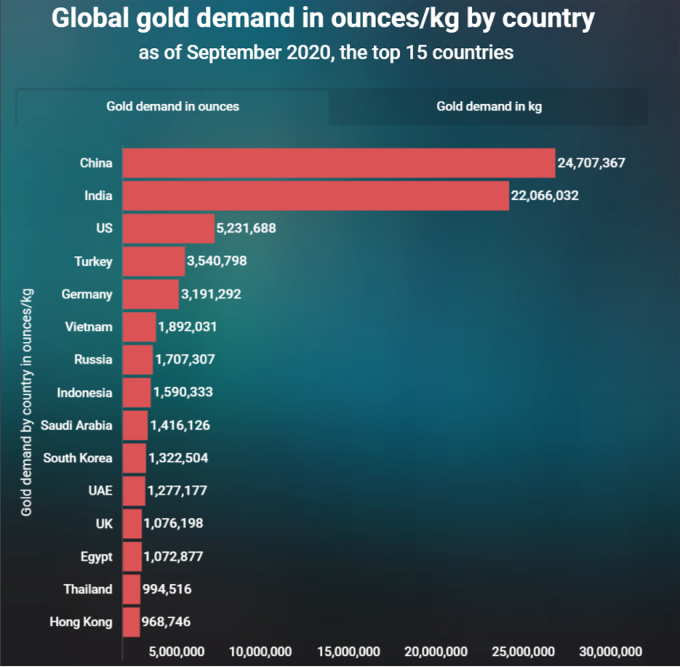
The truth is, irrespective of the prices and taxes, people will keep buying gold and the demand will always be high for this metal. However, if you want to understand the GST on Gold in detail, this article is the right place to start.
What is GST on Gold?
The GST on Gold is 3%, and this is considering gold as a good. Apart from this, there is a 5% GST on the making charges and a GST of 10% applicable on the import of gold.
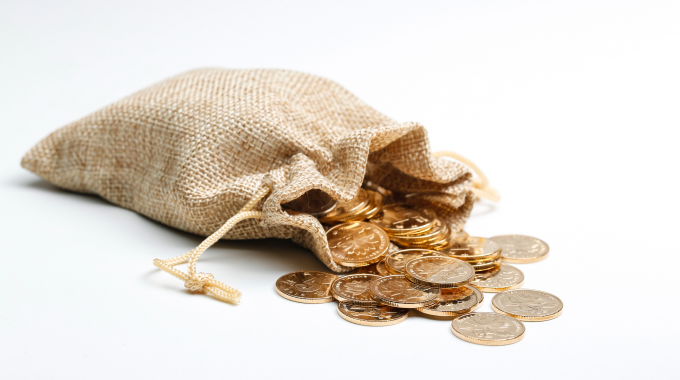
The demand for gold is always on an upward trend for multiple reasons. Not all people prefer stocking up on this precious metal just in the form of jewellery.
A lot of people consider gold a safe and profitable investment too. With every other asset, the value is always fluctuating on a regular basis. However, with gold, the value has constantly increased over time.
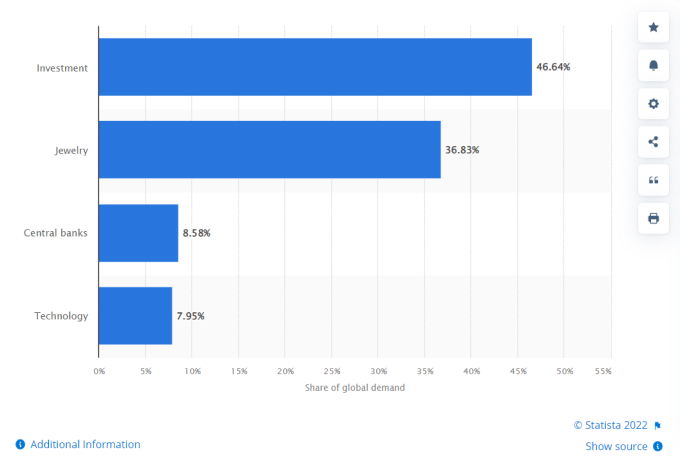
Before introducing Goods and Service Tax (GST) on Gold, there was a range of taxes and charges, especially on the import of gold.
On July 1st, 2017, India applied a GST on Gold, streamlining the taxes and charges and making the gold trade a lot more transparent in India.
As mentioned above, GST on gold is fixed at 3%, additionally, a 10% import duty applies on the import of gold.
If you are buying gold in the form of jewellery, then an additional 5% GST on making charges will be added.
The GST on gold is not just applicable to purchasing physical gold, but it is also applicable to digital gold purchases. When you purchase digital gold, your provider basically purchases physical gold, equivalent to the amount you invested.
Do these numbers and percentages confuse you? Are you wondering how exactly has the GST affected the price of gold?
Read on!
Before and After Applying GST on Gold
Before GST was implemented, buyers had to pay 1% VAT and 1% service tax, which is 2% of the selling price of gold. However, the GST on Gold right now is 3%, which basically makes gold more expensive.
Let us calculate the price of gold before and after GST in the table below:
| Price and Taxes | Before GST (in INR) | After GST (in INR) |
|---|---|---|
| Price of Gold | 50,000 | 50,000 |
| Custom Duty (10%) | 5,000 | 5,000 |
| Total Price of Gold | 55,000 | 55,000 |
| VAT+ Service Tax (2%) | 1,100 | NA |
| Total Price of Gold | 56,100 | 55,000 |
| GST on Gold (3%) | NA | 1,650 |
| Total Price of Gold | 56,100 | 56,650 |
| Making Charges | 3,000 | 3,000 |
| GST on Making Charges (5%) | NA | 150 |
| Final Price | 59,100 | 59,800 |
With this detailed calculation, we can clearly see that GST has increased the price of gold considerably.
Is the calculations getting on your nerves?
Let us tell you about the simplest way to calculate GST on gold, or any other product, for that matter.
Head over to our GST calculator tool, which is a totally free tool available online.
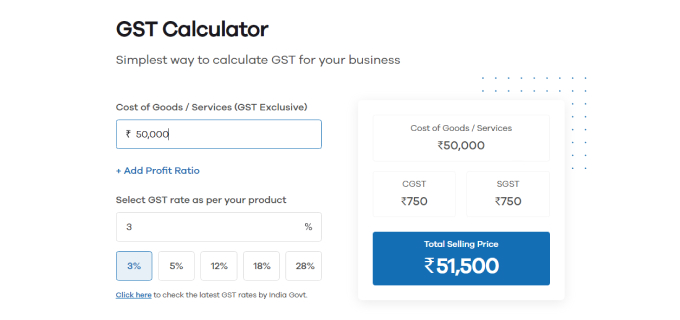
You just have to enter the cost of the goods/ services and select a GST rate (or enter your own), and you will be able to see the total cost of the goods/ services.
Can it get any simpler?
Impact of GST on Gold Market
Before implementing GST on gold, the total organized market for gold accounted for just 30%. By organized market, we mean legally importing gold and paying all the due custom taxes.
The biggest advantage of GST on gold within an organized market is that it helped the small-scale jewelers and gold players to stand at par with big players and corporates.
However, since GST has increased the price of gold, a lot of vendors in the organized market may start smuggling gold in or selling without an invoice.
Ironically, the impact of GST on the unorganized market is exactly the opposite. On an average, India imports anywhere between 700 and 800 tonne of gold annually. A significant amount of this is imported illegally.
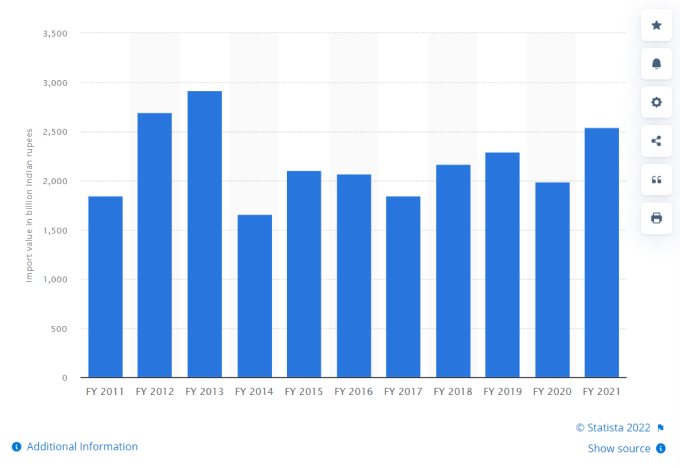
Since GST has increased the transparency in the trading of gold, the traders will be held accountable for any and all illegal actions.
The traders will have to document every transaction, which makes it very hard to engage in the smuggling of gold from overseas.
Impact of GST on Goldsmiths
When gold is imported by the jewelers, it is usually in the form of gold biscuits or bars. It is then supplied to the goldsmiths who smelt the gold and turn them into the jewellery that we are all so fond of.

Previously, the goldsmiths would charge for their service in the form of making charge on all the gold jewellery, which is usually 10 to 12% of the price of jewellery.
Under GST, the goldsmith’s work falls under the service, which falls under the service tax. GST on the making charges is currently 5%
All the goldsmiths are to be registered under the GST and if the merchants work with an unregistered goldsmith, then they would have to pay the 5% GST according to the reverse GST charge.
Even if a jeweler performs repair work on an old jewellery, the 5% GST on the making charges is still applicable.
Exemption of GST on Gold
In December 2018, the GST council had declared an exemption of GST for transactions with government-authorized individuals and jewellery exporters.
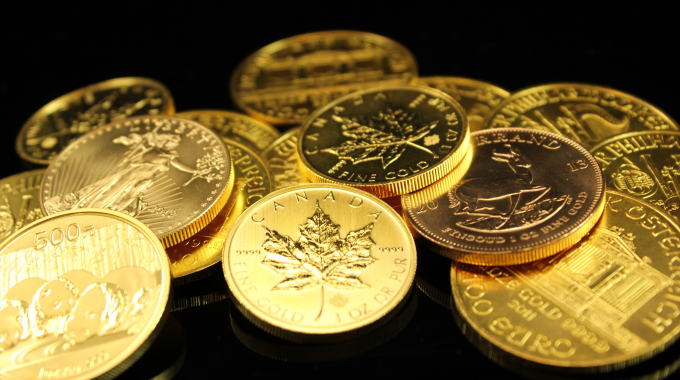
This exemption had no impact on domestic customers. The focus of this exemption is to help gold jewellery exporters. India’s gold export sector will gain a competitive advantage through this initiative.
The GST remains 3% on gold and 5% on the making charges, however, some licensed jewelers can claim 2% input tax credit on these charges.
Apart from this, there are a few grey areas when it comes to GST on gold, like if the purchase is made from an unregistered jeweler, then GST does not apply in such a case.
Similarly, when you are exchanging your old jewellery for a new one, there is no GST applicable to those transactions either.
Other Factors to Consider When Buying Gold
Through the GST percentage is fixed, the end price of gold and gold products will still differ because of a lot of factors.

- The price of gold in itself is fluctuating constantly depending on the import duty, currency fluctuation, demand, supply, etc.
- The price of gold also depends on its quality, which is measured in karats. 24 karat gold is considered the purest form. However, jewellers usually work with 22 karat, 18 karat and 14 karat gold only.
- When a gold jewellery has precious or semi-precious stones embedded, these stones fall under a different GST range. The purchase invoice should document them separately.
- Always buy gold with the hallmark/BIS certificate that ensures the purity of the gold.
- The invoicing system is not standardized in India. Smaller players may not provide a standard invoice with the GST details. Ensure that they do.
And I leave you with these factors that you need to consider before buying gold.
FAQ’s
1. What is the GST on gold in 2022?The GST on gold is 3% which is a combination of 1.5% CGST and 1.5% SGST. When gold is imported, an import duty of 10% is applicable on the gold.
2. Can I buy gold without GST?
No, you cannot. Gold merchants are legally registered under the GST law and need to abide by the GST policy. Hence, there will be no transactions of gold without paying the GST.
3. Can we sell gold without GST?
Yes. if someone is selling their old gold jewellery for personal usage or exchanging old jewellery for a new one, then the GST is not applicable.
4. Does gold rates include GST?
No, they do not. Gold rates are completely different and independent of the GST. The fluctuations of the gold rate depends on various factors like demand, supply, import duty, etc.
5. How do I calculate GST on Gold?
GST on gold is calculated as- (rate of gold X 3)/100
The total price of gold is calculated as- rate of gold + GST amount.


Leave a Reply
You must be logged in to post a comment.